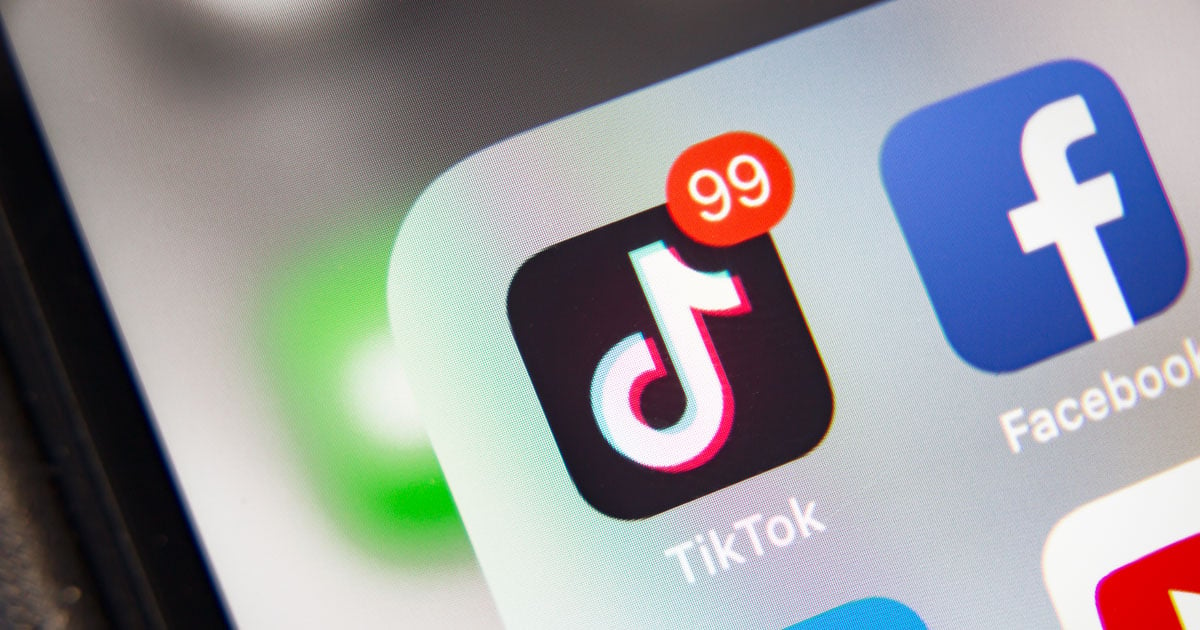
Gen Z now makes up more than a quarter of the U.S. population and is poised to surpass baby boomers in the workforce for the first time this year. Understanding how to reach this demographic should be a priority.
Below are ten things to consider as it relates to recruiting Gen Z nurses.
Gen Z is concerned about money and pay, partly because of the high levels of student debt they carry. EY surveyed Gen Z in 2023 and found that 52% said they were either very or extremely worried about not having enough money. When looking at student debt, the St. Louis Fed reported that Gen Zers had, on average, $20,900 in student debt, which is 13% more than millennials. When looking at the average debt nurses face for a four-year program, $30,300, as reported by Nurse Journal, it’s no wonder that Gen Z nurses are stressed about money.
Because of their concerns around financial wellness, many Gen Zers, 45% according to Credit Karma, work multiple jobs. Their digital upbringing has opened up many new opportunities to gain access to income. EY reports that Gen Z may put as much time and effort into their side gig as their primary employment. It will be interesting to see how this impacts the amount of hours Gen Z nurses are willing to pick up. They could be less likely to pick up additional shifts at the hospital when they have a successful side hustle providing extra income.
Employers who offer resources for fiscal coaching, financial wellness, student loan repayment, financial support to further education, or other solutions that address financial planning may stand out amongst peers. It is recommended that content about the company's financial wellness support be added to job ads or served to Gen Z nurses through other channels.
According to Tipton Health, Gen Z nurses prefer to move directly into a specialty upon graduation rather than go into medical-surgical nursing (med surg) to gain experience. This desire may further exacerbate shortages of med surg nurses unless health systems can get creative with how they approach career planning and incorporate med surg into a rotation that would help a nurse achieve their end goal of landing their desired specialty.
Messaging through branded content or recruiter talk tracks around what this career path could look like could help with new grads being willing to take on a med surg role, if it promised them their desired end goal over time.

According to an October 2023 research brief released by the American Association of Colleges of Nursing, 84% of BSN graduates have a job offer at graduation. The percentage increases to 96% 4-6 months after graduation, a significant increase compared to the placement rates across all degree disciplines (which was 55.3% according to a 2021 NACE report).
Utilizing residency programs to the fullest extent to build pipelines for new grad hiring is a great way to catch these new nurses before they start looking elsewhere. Residency can also impact retention rates, a crucial point since the average cost of turnover for an RN is $52,350, according to Beckers. They can also help build new nurses' confidence levels and decrease burnout they may experience.
Gen Z places a great emphasis on work-life balance. According to a McKinsey study, 77% of Generation Z prioritize work-life balance. Also, according to a 2023 Deloitte study, Gen Z ranks work-life balance as their top consideration when picking an employer, and they rank the ability to maintain a positive work-life balance as the top trait they admire in their peers. Highlighting flexible working arrangements to attract nurses is paramount.
Secondly, as a whole, Gen Z experiences higher levels of anxiety compared to other generations, and this can be seen even more so for nurses. For nurses in particular, a survey by Incredible Health found that 80% of new healthcare workers found their training overwhelming and rushed. When coupled with how Gen Z faced unique challenges with remote learning during the pandemic, new nurses are left feeling stressed and inadequate. Healthcare systems that pair younger nurses with older nurses who can train and mentor them may help alleviate some of the anxiety these Gen Z nurses feel. Highlighting these training and mentorship programs in branded or job ad content is recommended.
And lastly, Gen Z places a big focus on mental health. The standard two weeks of PTO and basic medical are probably not enough to attract a Gen Z nurse. For example, they need plans that cover mental health services and access to therapists at affordable rates. Helping nurses address their mental health may also help move the needle with job satisfaction and retention. According to AMN, “nurses who address mental health issues at least four times a week have greater career satisfaction (69%) than those who do not address their mental health often (47%).”
Although the majority of nurses are white and female, Gen Z as a whole is the most diverse generation to date in terms of demographics, beliefs, and attitudes.
If the health system shares it cares about DEIB, more than that may be needed for Gen Z. They want accountability and will likely be looking to see measurable results. It’s worth noting that, according to EY, Gen Z also doesn’t have high levels of trust in large companies. In fact, the larger the company, the less likely Gen Z is to trust them. Gen Z nurse candidates are likely looking beyond just the company website to see what is happening from a DEIB perspective. They are probably also scouring sites like Glassdoor to see ratings from DEIB employees to see if the company is really walking the talk. Candidates can now filter reviews on Glassdoor by job title and can even see scores broken down at the DEIB level. Ensuring the company has a strong review response strategy in place is one tactic to show hiring professionals are listening to and valuing the perspectives of their employees.

According to AMN’s 2023 Survey of Registered Nurses, younger generations of nurses (both millennials and Gen Z) are less satisfied with their nursing jobs. Also, satisfaction rates continue to dip overall – this study, in particular, found a 10-point decrease in satisfaction from 2021 responses to 2023 responses.
They are also less likely to encourage a peer to pursue a nursing career, 42% of Gen Z compared to 62% of Baby Boomers, for example. According to the study, the likelihood of recommending nursing is directly tied to their satisfaction, stress, and education levels.
Beyond not recommending to others, new nurses are also rethinking their careers for themselves. Incredible Health reports that 55% of new nursing grads don’t plan to stick with the profession through retirement. Adjusting strategies to hold onto these nurses will be critical as the U.S. population ages, driving the demand for more healthcare. Stay interviews could be an excellent place to start if hiring professionals don’t already have that implemented as a tool.
Gen Z watches a lot of video content. According to May 2023 stats from Statista, streaming video is the top form of media consumption for this generation. YouTube, TikTok, and Instagram are used frequently, and high levels of CTV usage on channels like Disney+, Prime Video, and Hulu are observed. Incorporating video content into a strategy to reach nurses should be part of the always-on approach. Consider videos that offer a review of the organization, offer advice, or tell a story.
In addition to video, Gen Z also spends more time listening to music than other generations – to the tune of 40 minutes more per day, according to the latest Edison Research on the topic. Their genre preferences include Hip Hop / R&B, Top 40, and Alternative Rock. If hiring professionals have all the boxes checked for other down-funnel media tactics and want to layer in some branding, digital audio could be viable to meet candidates where they are.
Gen Z is tech-savvy and expects communication through a variety of channels. They are tied to their phones from the moment they wake up until it’s time to fall asleep at night. Recruiters should consider that responding to a text or instant message and talking on Facetime is second nature and should be used to communicate with candidates. Utilizing things like text over email, when viable, might be a way to shorten some of the company’s down-funnel recruitment KPIs.
With respect to technology, AI usage amongst Gen Z is also high. On the job hunting front, they are using it to help them write their resumes and cover letters, and even to help them apply to jobs more rapidly. They are also using it for career advice. In fact, 47% of Gen Zers surveyed said they'd turn to AI or ChatGPT to get better advice than what their manager offered, according to a recent Intoo report.

While Google search is an always-on strategy recommended, it is essential to note that Gen Z’s search behavior differs from that of other generations. They may lean into other ways to find information, such as through images, voice search, and AI chatbots. Additionally, many Gen Zers prefer TikTok over Google for their search. According to the Search Engine Journal, 64% of this cohort turn to TikTok as a search tool. Ensuring the company’s brand has a presence on TikTok could help establish authority in the space, and meet the candidates where they are searching for information.
Stats from Handshake also back up the value of using TikTok or other forms of social media to attract new grads. 21% of the Class of 2023 said they relied on social media to help them find a job, up from 13% for the class of 2022.
Gen Z desires transparency and wants to align themselves with a company that mirrors their values. They want to see what a company stands for. According to Deloitte, 77% say working for a company whose values align with theirs is vital.
Ensuring the employee value proposition is clear will be critical to reaching new nurses. All healthcare systems exist to help people, but systems will need to take it a step further to show why they stand out over others. They will need to speak transparently about how they are helping address critical issues Gen Z cares about – like climate change, for example. It is recommended that this be infused in an easy-to-find spot on the careers website.
—-
In conclusion, a new generation of nurses is here. Learning as much about them as possible will be crucial to ensuring you are attracting the talent you need to care for the patients you serve.
If you need an agency partner to help you with your nurse recruitment efforts, contact Recruitics to learn more about how we help companies succeed in recruiting nurses.
info@recruitics.com
230 East Avenue
Suite 101
Norwalk, CT 06855
US +1 877 410 8004
© 2024 Recruitics • All Rights Reserved


